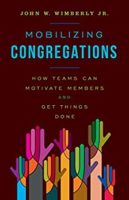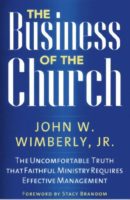Many congregations think the answer to their problems is a superstar—a charismatic senior pastor, a superb musician, or a Pied Piper youth director. Research on teams reveals a deep flaw in such thinking, and congregational leaders are well advised to pay attention to the data.
For example, in 2010, professors at two universities in Texas created a model to test how the makeup of teams affect productivity. Two types of teams stood out from the rest—the highest and lowest performing. The top performing groups didn’t have a superstar. Instead they had “clusters” of above-average performers. In fact, “the greater the superstar status (of one team member), as compared with the rest of the group, the lower is the achievement of the overall team.” So much for hiring a superstar to improve your staff’s performance!
Superstars vs. Teams
In his recent book, The Captain Class, Sam Walker, a former sportswriter and current deputy editor at the Wall Street Journal, points out that we tend to focus on the accomplishments of geniuses throughout history, and ignore the accomplishments of teams of talented but not genius-level individuals.
- It was a team of programmers that built the Google Search algorithm.
- A three-nation team, the Manhattan project, created the first nuclear weapon.
- A team of scientists at Oxford discovered penicillin.
- A small team of Soviet engineers designed the Sputnik satellite.
- A team played a vital role at NASA in the early years of the space program, as dramatized in the recent movie Hidden Figures.
When I have seen a congregation hire a superstar staff person, the result has generally been hit or miss—sometimes impressive, sometimes not. In contrast, where I have seen a cluster of excellent staff members working as a team, the congregation has almost always grown in numbers and ministry. Congregational leaders are wiser to build a staff team of talented team players than to search the universe for one superstar.
The results of this research can be a bit deflating. Who wants to be known as “above average” rather than “outstanding”? I can hear the groans as I recommend to a governing board that they look for a bunch of above-average staffers. But facts are facts. Get a team of above-average, emotionally healthy, dedicated, faithful women and men working together and good results will generally follow.
Above Average Teams
I think back to the teams Moses created to get the people of Israel across the Sinai and Jesus created to spread the Good News. If there were superstars in their midst, we don’t really know about them. We do read about talented, committed types like Aaron and Peter who were exemplary staff members (most of the time!). While many of the names of Moses’ and Jesus’ staff are lost in the sands of history, the results of their efforts ripple across the millennia.
At the heart of high-performing teams is an awareness of what skills and personality types the team needs to perform its responsibilities. What is not needed is a bunch of superstars.
Putting a financial whiz onto the finance team can lower team performance if he or she dominates. Multiple team members are needed who know the ins and outs of profit and loss statements, Excel spreadsheets, and other finance basics. If a team is working on diversifying worship music, multiple members are needed who know or are willing to learn the ever-expanding library of music. A team must also have, among its members, the personality types the team requires. Lone-ranger types need not apply for team work. Use them instead for tasks where lone rangers can excel.
While the research Sam Walker cites doesn’t discuss it, systems theory causes predicts that the presence of an over-functioning superstar on a team can lead the other members to under-function. Team members know their superstar is capable of greatness. Why not let the star be great? Why get in the way? A team whose members all fall into the same range of above-average expertise or ability doesn’t look to a single superstar to perform. For the team to be successful, each team member must perform at a high level.
By now, you may be asking, “What about the average and even below average people? What do we do with them?” There is a place for each of us on God’s team! Regardless of each person’s skills, a way can be found to fit them into a productive team. Finding those places is at the heart of a pastor’s ministry. Every championship sports team has some average players. A good coach uses them strategically so they can use their strengths. Congregations need to do the same with members.
Systems theory and recent research agree: we should not build ministry teams of staff or volunteers by looking for a superstar. We need people who can blend their passion and talents with those of others on a productive, faithful team.
John Wimberly is an experienced pastor and consultant. As a consultant, he has worked with congregations and judicatories on strategic planning, staff designs for the 21st century, and congregational growth as well as financial and administrative management. He has MBA, MDiv, and PhD (theology) degrees. His books focus on effective management and leadership. John believes congregations can have a bright future!




